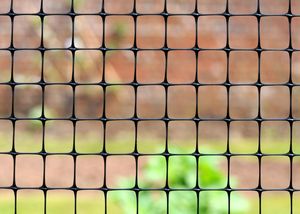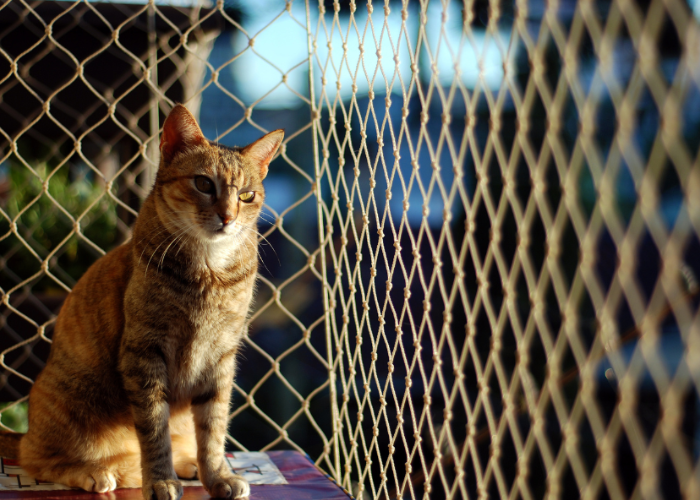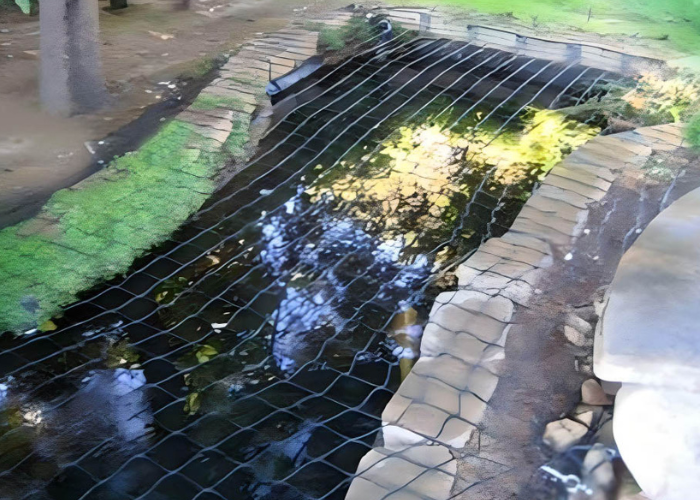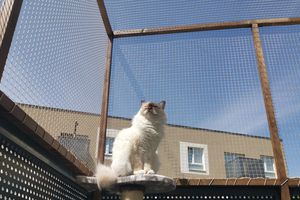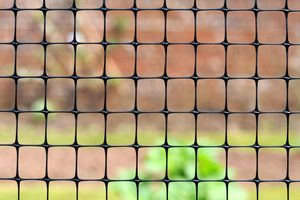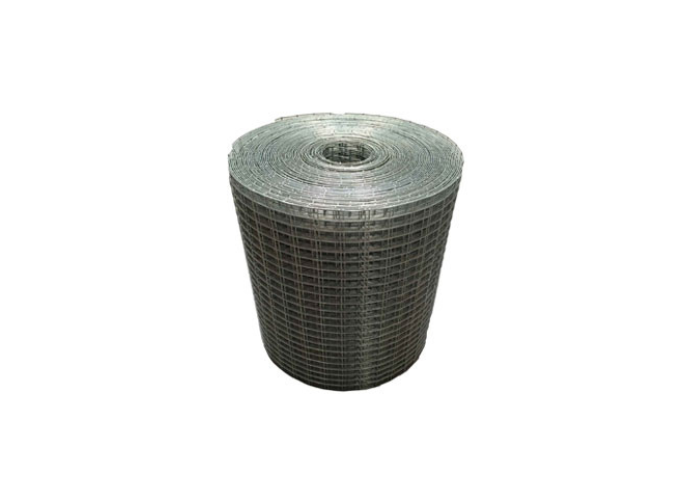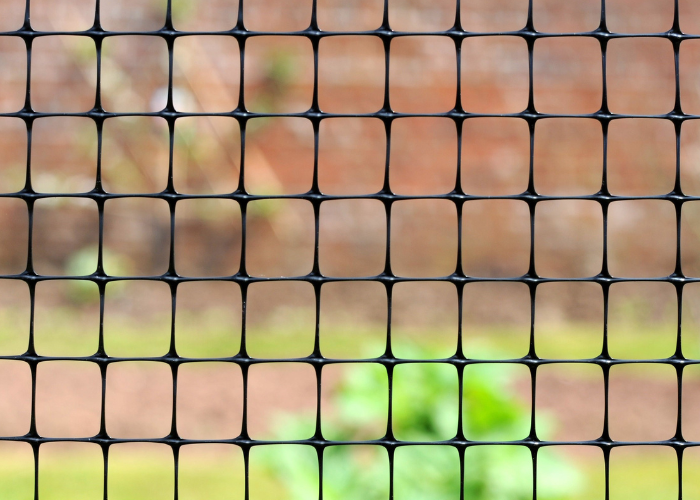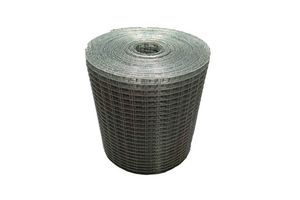How to Keep Cats Out Of Your Garden: The Best DIY Approaches
Whether this is a new problem you're dealing with or you've been stuck with moggies using your garden as a toilet for a while, we have some effective ways on how to keep cats out of your garden for good.
You may have already tried the classic methods, like sonic repellents or an old-fashioned water sprayer, but these don't always solve the issue (particularly if the cats in your area are determined little rascals).
A more permanent and budget-friendly solution is to try a few DIY approaches, like being clever with fencing barriers or changing up your garden design.
Not only will they save you money in the long run, but they're also more humane than other deterrents, and they can even benefit your garden.
Why Cats Are Attracted to Your Garden
It can be frustrating, to say the least, but cats are exploratory and curious creatures. They'll often see your garden as a playground, a hunting ground, or simply somewhere new to explore.
And for some reason, they never appear interested in their own garden, so they always seem to pick yours instead!
But what is it that draws them to your green space in the first place? There are numerous reasons, but these are the most common and some you may recognise...
Soft, Loose Soil for Digging & Toileting
It's well known that cats never do their 'business' in their own garden, so the looser and softer your soil is, the more likely they are to dig a hole and leave their mess behind.
Their own garden at home is already their territory, so there's no need to mark it. However, a new and unfamiliar garden is like an open invitation for them to claim some ground. They'll often seek out the soft soil around plants, and even in raised beds.
Explore Our Plant Netting Range
Sheltered & Warm Spots for Resting
Cats are notorious for seeking out warm, cosy spots to rest and sunbathe. If your garden is lucky (or, in this case, perhaps unlucky) enough to get a lot of sun exposure, then it will attract cats like a magnet.
Hunting Opportunities
Most outdoor cats have a natural instinct to hunt and explore in their own gardens. However, if your garden has abundant plants, flowers, or even bird feeders, it can be an enticing place for cats to find prey.
If you've recognised signs of rats in your garden, this could be another reason you're seeing more cats around — they may be hunting these rodents, which isn't necessarily a bad thing, but it's not ideal if you're trying to keep them out.
Neighbourhood Territorial Marking
In large residential areas where a lot of cats live, it's not uncommon for them to mark and claim new territories. And this includes your garden!
If you're seeing multiple neighbourhood cats loitering and leaving their scent behind, chances are they're trying to establish a new area as their own.
Access to Food or Water
If you're feeding birds or have a pond in your garden, this can also attract cats looking for an easy meal or drink of water. Cats are opportunistic creatures and will take advantage of any food sources they come across.
It's important to use pond netting if you're keeping fish, as this won't just protect your aquatic pets from cats but also from other potential predators like birds and herons.
The Best DIY Ways to Keep Cats Out Of a Garden
Often, once you've identified the reasons why these moggies are drawn to your garden, it's easier to find effective ways on how to keep them out. You're essentially targeting their motivations and making it less appealing for them.
These are some of the best DIY approaches to keep cats out of your garden. We highly recommend trying a combination of these methods for maximum effectiveness.
Create a Netting Barrier
While cats can climb wooden fences with no real problems, fence netting barriers prove to be trickier.
You can erect a net barrier in front of your existing fence or create an exclusion barrier around certain areas in your garden, like where your prized plants are.
You can also use it to block off any holes where the cats may be sneaking through, like gaps in gates.
For example, our Cat Containment/Exclusion Netting can be secured to a garden gate using cable ties. The 20mm mesh size is effective at keeping out cats (and other garden predators), but will still won't obstruct insects and pollinators.
If you want to create more of an exclusion barrier, a plastic mesh, like our Plastic Cat-Proof Fence, will do the job well. You can attach this to existing fence posts or use other upright structures.
If you grow your own fruit and vegetables at home, we'd also recommend considering purchasing a fruit cage to construct around your crop patch, as this provides some of the most reliable protection against cats, as well as birds and other pests.
Use Stones or Aggregate
Laying down stone or aggregate where you have bare soil is another way to make your garden seem less attractive to cats. The rocks will be uncomfortable for them to walk on and they won't want to dig through it.
You can also use stones to create 'islands' around your plants where cats like to toilet (like a small moat). This forces the cats to find alternative areas.
This method also has additional benefits, as it helps reduce weed growth and retain moisture in the soil. Plus, there are lots of garden stone and gravel types that can really enhance the look of your space, like slate chippings or coloured decorative stones, and they come in a variety of sizes.
Create Obstacles for Cats to Climb Over
While cats are good climbers, they often prefer to take the easiest route. By creating obstacles for them, this can deter them from trying.
Obstacles could be things like garden ornaments or tall plants. Position them in areas where cats are most likely to enter or walk around.
You can also use natural deterrents, like rosemary or lavender plants, as these can be prickly and unpleasant for cats to brush against. Plus, they add a lovely fragrance to your garden.
Read Our Garden Trellis Tips & Tricks!
Attach Wire Mesh to Your Fences
If you find the common access route for cats is by leaping over your fence, you can attach weldmesh or wire mesh to the top part of your fence, which will make it more difficult (and less tempting) for them to scramble over.
The weldmesh can be fixed to the upper section of your fence, and slightly over the top.
You can shop weldmesh rolls on our website, which are supplied in various lengths depending on how much you need. It's easy to cut to size with a pair of wire cutters, and you can secure it with cable ties, staples or U-nails.
Buy Weldmesh Rolls to Cat-Proof Your Fence
Attract Them to One Area
If cats using your garden as a litter tray is your main problem (which it is for many people), you could tackle the issue by prompting them to use a designated area.
You can keep one area at the top of your garden, or somewhere else that's out of the way, free from other plants and obstacles. This could become their preferred spot if you keep it clean and refreshed regularly (just in case your carefully situated stones get moved).
It might not be the most ideal solution for your garden, but it's better to have a segregated area where they can do their business than all over the place. You can encourage them to stay away from the rest of your garden by using deterrents like citronella and lemon grass, which repel cats.
Other Common Cat Deterrent Methods
There are also some more low-effort solutions to keeping cats out of your garden, which you can use alongside the DIY methods above. If you haven't given these a go already, we recommend giving them a try.
- Citrus peels and scents, like lemon or orange, can act as a natural repellent for cats. You can scatter them around your garden beds or place slices on top of soil.
- Motion-activated sprinkler systems are also an effective way to scare off cats when they enter your garden. The sudden burst of water will surprise them and make them think twice about returning.
- Ultrasonic deterrents emit high-frequency sounds that are unpleasant for cats, but inaudible to humans. They can be placed around the perimeter of your garden or near specific areas you want to protect.
- Getting your own cat can also help keep other cats out of your garden. Cats are territorial animals, and having a resident feline can discourage other cats from entering your space. If you've ever considered having your own pet cat, this could be the perfect opportunity!
- Keeping your garden clean and tidy can also make it less tempting for cats to use as a toilet. By regularly removing any debris or clutter, there will be less places for cats to hide and dig.
- Don't offer them food, intentionally or unintentionally. This means not leaving out any food or water bowls for your own pets outside, as this can attract other cats to your garden.
Read more on this topic…
How to Build a Catio At Home: A Step-by-Step Guide
What is the Law Around Deterring Cats from Gardens?
While it can certainly be frustrating and unpleasant to constantly have cats toileting in your outdoor space or climbing all over your plants, it's important to remember that cats are considered domesticated animals and, therefore, have certain protections under the law.
The Animal Welfare Act 2006 states that it is an offence to cause any unnecessary suffering to an animal, and this includes cats.
While you are within your rights to take reasonable steps to deter cats from your garden, it's important to always do so in a humane and non-harmful way. Breaking this law can result in a maximum penalty fine of £20,000 and/or imprisonment of up to 6 months.
Unlicensed deterrents, such as traps or harmful chemicals, are also illegal and can result in prosecution.
You can read more about cats and the law in the Cat's Protection guide.
Is it Possible to Completely Stop Other Cats from Entering Your Garden?
The truth is, it's very difficult to completely stop other cats from entering your garden, especially if you live in a community with a lot of outdoor cats. Cats are clever and resourceful creatures, and they'll always find a way in if there’s something that interests them.
You can certainly greatly reduce the likelihood and frequency of cat visits by implementing the above deterrent methods, but it's important to have realistic expectations. Rather than trying to completely eradicate cats from your garden, focus on making it a less appealing space for them to visit.
They are just trying to find a place to do their business or explore — it's not personal!
Shop Cat Exclusion Netting for Your Garden
Key Takeaways: Safely & Legally Deterring Cats from Your Garden
Any routes you take to keeping moggies away from your beautiful garden should be safe and legal. Never intentionally harm an animal, and remember that cats are protected under the law.
We recommend trying anti-cat fencing solutions as your first line of defence, as this is a cost-effective way to keep them out. You can couple this with other methods like deterrent plants, designated toileting areas, and laying down decorative stones.
You can order the best cat-proof fencing and mesh right here at Huck Nets, and we offer fast delivery throughout the UK. Our products are made to a very high-quality and are fully weatherproof, so you can be sure they will last.
Shop our cat-proofing essentials below.
FAQs
How Can I Stop Cats Pooping in My Garden?
Cats are more likely to poo in soft soil or freshly dug areas, so cover any loose soil with plant bed covers or decorative stones. Certain smells, like citrus peels, can put cats off as well.
What is the Best Cat Repellent for Gardens?
The best cat repellent is a combination of methods. We recommend using cat-proof fencing or wire mesh fixed to your fence, which will discourage cats from climbing over and entering your garden. You can also use deterrent plants, motion-activated sprinklers, or ultrasonic devices as additional measures.
How Do You Cat Proof a Potted Plant?
You can try a few methods, such as:
- Laying pebbles or decorative stones on top of the soil, which will make it difficult for cats to dig and use as a toilet.
- Use plastic mesh to create a barrier on top of the soil, which still allows water to pass through but will prevent cats from digging.
- Plant cat deterrent plants like lemon balm or lavender around the pot.
- Coffee grounds or citrus peels can also act as a natural repellent when scattered on top of the soil.
- Move the location of your potted plants to a less accessible area for cats.
How Do I Keep Cats Off My Plants?
Garden plant netting is an effective and cost-friendly way to protect your plants from cats. You can lay soft plant mesh over your plants, like our 20mm Multi-Purpose Netting, or create structures using bamboo canes.
Fruit cages are also a popular option for keeping cats off plants and preventing them from eating your produce, particularly in allotments or vegetable gardens.

